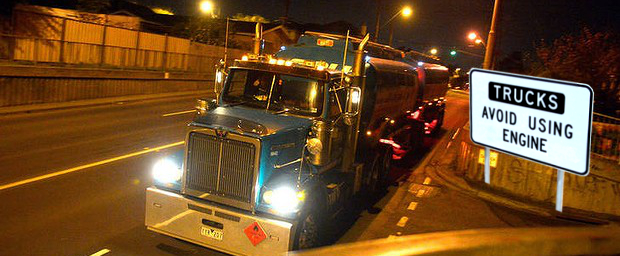Noise complaints favoured, but could create congestion
Governments are too willing to put residents’ complaints ahead of industry access to roads, rail and ports - Michael Kilgariff says.
The chief executive of the Australian Logistics Council says governments should be less eager to appease residents’ noise complaints and more willing to let transporters access the infrastructure they need, as “urban encroachment” creeps closer into previously industrial areas.
The CEO of the nationwide logistics body says that freight links must be protected, or growing cities will run the risk of losing productivity by creating unnecessary rules and increasing congestion along with them.
“With growing land development pressures, sensitive land uses, mainly residential, are constantly seeking to locate closer and closer to strategic freight routes,” Mr Kilgariff said in the lead-up to a speech at the Victorian Major Projects conference.
“The result is reduced freight efficiency and productivity and poor urban amenity for affected residents.
“Once these developments are built, new residents lobby their local member to have heavy freight traffic restricted or prohibited. Our industry is an all too regular casualty of this scenario, as it's well known that 'freight doesn't vote',” he said.
Melbourne is a good case in point. The city’s major port is located very near the CBD, and with the population set hit 6.5 million by 2050 there must be an even balance struck between residents and the transport industry, or else Melbourne might risk grinding to a halt.
Last year, residents living in suburbs near Melbourne docks regularly complained about late night noise from safety sirens at the Port of Melbourne. The use of sirens is vital to operation of the Port, however, so it would be difficult to imagine anything happening after hours if no noise can be made in the heavily industrial environment.
“Too often we are dealing with amenity issues related to residential encroachment that could have been avoided in the early planning stages,” said Matt Vincent, the Victorian Environment Protection Authority’s director of strategic relations.
The EPA says separation buffers could be set up for urban developments, so that houses would not be built too close to dust, sound and odour-emitting industries.
Mr Kilgariff backed a recent proposal to lease the Port of Melbourne to a private operator for funds to improve railway crossing over city roads.
The ALC CEO has also backed the 18-kilometre East-West Link proposal, which he says “will be critical to easing congestion,” if the business case behind the build is adequate.








 Print
Print